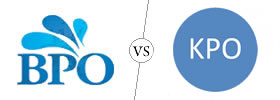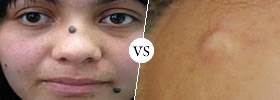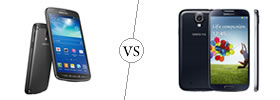Difference between Malware and Spyware
Key Difference: Malware, short for malicious software, is an umbrella term that incorporates all kinds of software or programs that can be used to disrupt normal computing capabilities. Spyware, true to its name is software that spies on shopping and browsing habits of users.
 Technology has made us lazy, we expect technology to do almost everything for us including clothes shopping, socializing, purchasing groceries, paying bills, etc. We go to online for every need and whim. We even use Wii for exercise, rather than go outside to the park. Everyone these days is online; this new online portal has also brought with it many different types of hazards such as software that aim to harm the computer. These software can go further and even take personal data from the computer. Malware is the generic term that is used to address all the different kinds of malicious software that exists, while spyware aims recording shopping and browsing habits of a user.
Technology has made us lazy, we expect technology to do almost everything for us including clothes shopping, socializing, purchasing groceries, paying bills, etc. We go to online for every need and whim. We even use Wii for exercise, rather than go outside to the park. Everyone these days is online; this new online portal has also brought with it many different types of hazards such as software that aim to harm the computer. These software can go further and even take personal data from the computer. Malware is the generic term that is used to address all the different kinds of malicious software that exists, while spyware aims recording shopping and browsing habits of a user.
Malware, short for malicious software, is an umbrella term that incorporates all kinds of software or programs that can be used to disrupt normal computing capabilities. These software or programs can be used by attackers disrupt computing operation, gather sensitive information or access private secure systems. Almost all kinds of disruptive programs including spam mail are included under malware. Malware includes computer viruses, ransomware, worms, trojan horses, rootkits, keyloggers, dialers, spyware, adware, malicious BHOs, rogue security software, etc.
Malware comes in forms of code, scripts, mail, software and even legitimate programs. Malware is commonly used as a means to gather statistics, sensitive data (name, address, credit card information, etc.), send mass spam e-mails, host contraband data, send advertisement, etc. The most common used malware includes viruses and worms. Malware exploits security defects in software, operating system and applications. The most common way to keep the system from malware includes anti-malware and anti-virus software. If a system is already infected, then system restore and formatting can be used to fix the computer. There are also professionals that work to clean the computer of the malware for a cost.
 Spyware, true to its name is software that spies on shopping and browsing habits of users. A spyware that is installed on a computer is considered as a potential threat because it can use personal information by the user and provide them to advertising companies. The software is responsible for gathering information about a person, without the person’s knowledge and sending the information to a third party without the consumer’s content. "Spyware" is mostly classified into four types: system monitors, trojans, adware, and tracking cookies. On its website Microsoft defines ‘spyware’ as, “Spyware is often associated with software that displays advertisements (called adware) or software that tracks personal or sensitive information.”
Spyware, true to its name is software that spies on shopping and browsing habits of users. A spyware that is installed on a computer is considered as a potential threat because it can use personal information by the user and provide them to advertising companies. The software is responsible for gathering information about a person, without the person’s knowledge and sending the information to a third party without the consumer’s content. "Spyware" is mostly classified into four types: system monitors, trojans, adware, and tracking cookies. On its website Microsoft defines ‘spyware’ as, “Spyware is often associated with software that displays advertisements (called adware) or software that tracks personal or sensitive information.”
Spyware is most commonly used to track the user’s interests and then using them for rendering pop-up ads to the user. Some spyware such as keyloggers is installed by companies in order to keep an eye on their employees. Spyware can become malicious when it targets personal information such as social security numbers, credit card numbers, username and passwords. People can detect and remove spyware using free tools that are available online or by installing security programs. Some spyware can also be integrated into shareware and freeware. For installation, spyware uses the loopholes in JavaScript, Internet Explorer and Windows operating system itself.
So, spyware is basically a type of malware, while not all malware is a spyware. Malware is the generic term that is used to refer to all programs and software that can cause problems, while spyware is created specifically with the aims of gathering data for some corporation. Spyware can also be imbedded in a software that is bought from a legitimate company that tracks computing habits and forwards that data back to the company. Hence, it is always best to read all documents and to occasionally clean the computer using anti-malware and antivirus software.
Image Courtesy: outsourcemanila.com, ww2.laplink.com









Add new comment